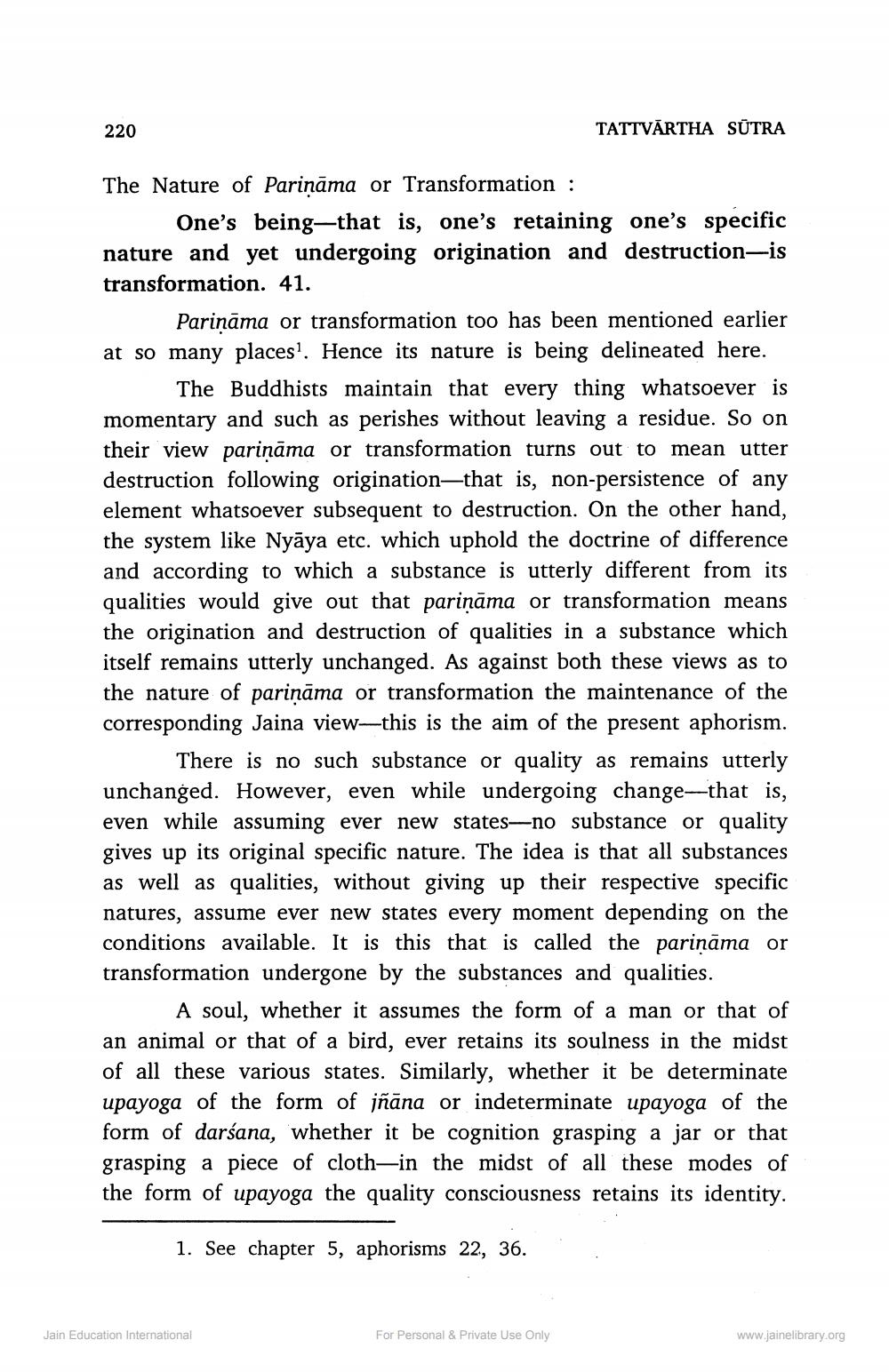________________
220
TATTVĀRTHA SŪTRA
The Nature of Pariņāma or Transformation :
One's being—that is, one's retaining one's specific nature and yet undergoing origination and destruction is transformation. 41.
Pariņāma or transformation too has been mentioned earlier at so many places'. Hence its nature is being delineated here.
The Buddhists maintain that every thing whatsoever is momentary and such as perishes without leaving a residue. So on their view pariņāma or transformation turns out to mean utter destruction following origination—that is, non-persistence of any element whatsoever subsequent to destruction. On the other hand, the system like Nyāya etc. which uphold the doctrine of difference and according to which a substance is utterly different from its qualities would give out that pariņāma or transformation means the origination and destruction of qualities in a substance which itself remains utterly unchanged. As against both these views as to the nature of pariņāma or transformation the maintenance of the corresponding Jaina view—this is the aim of the present aphorism.
There is no such substance or quality as remains utterly unchanged. However, even while undergoing change-that is, even while assuming ever new states—no substance or quality gives up its original specific nature. The idea is that all substances as well as qualities, without giving up their respective specific natures, assume ever new states every moment depending on the conditions available. It is this that is called the pariņāma or transformation undergone by the substances and qualities.
A soul, whether it assumes the form of a man or that of an animal or that of a bird, ever retains its soulness in the midst of all these various states. Similarly, whether it be determinate upayoga of the form of jñāna or indeterminate upayoga of the form of darśana, whether it be cognition grasping a jar or that grasping a piece of cloth-in the midst of all these modes of the form of upayoga the quality consciousness retains its identity.
1. See chapter 5, aphorisms 22, 36.
Jain Education International
For Personal & Private Use Only
www.jainelibrary.org




